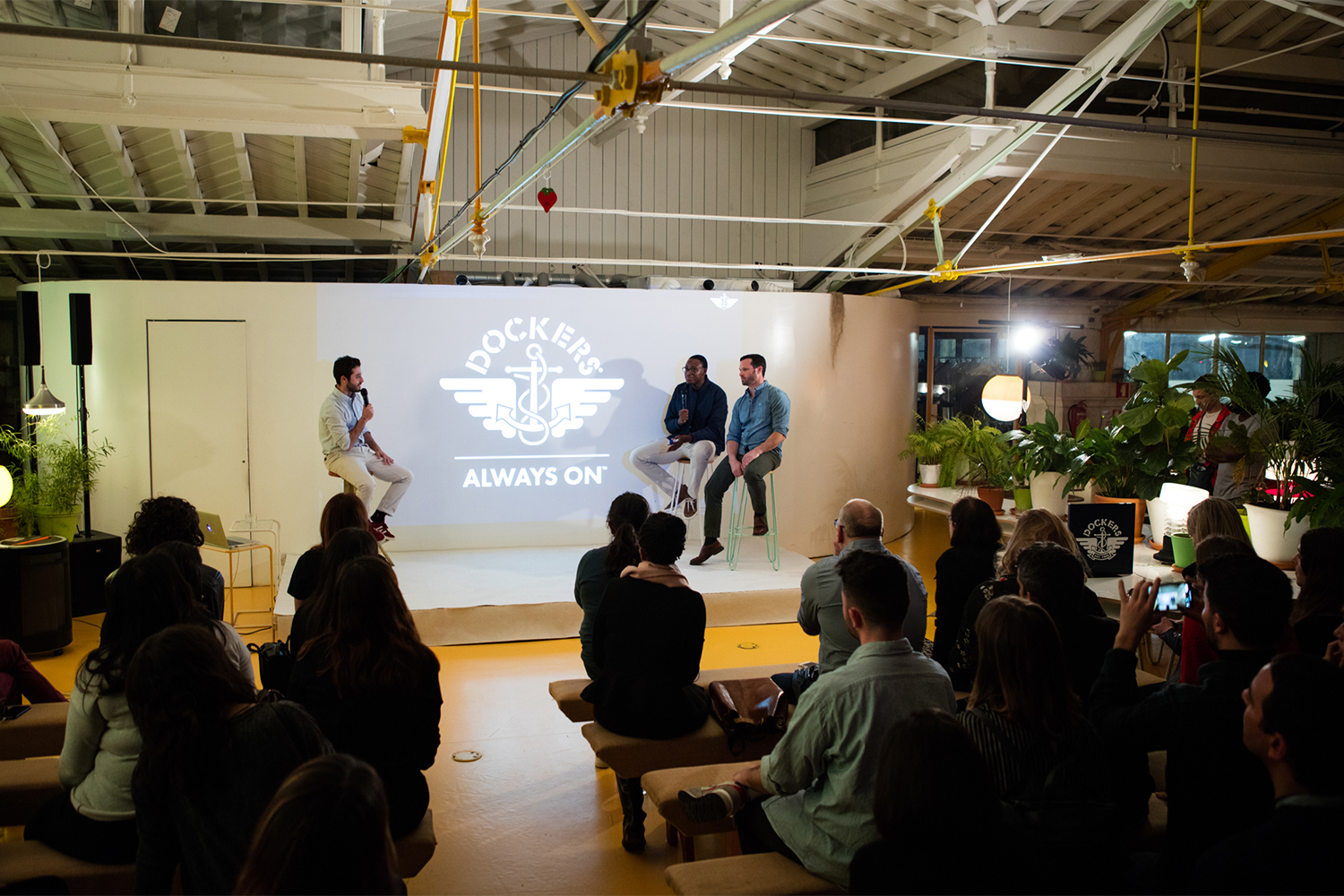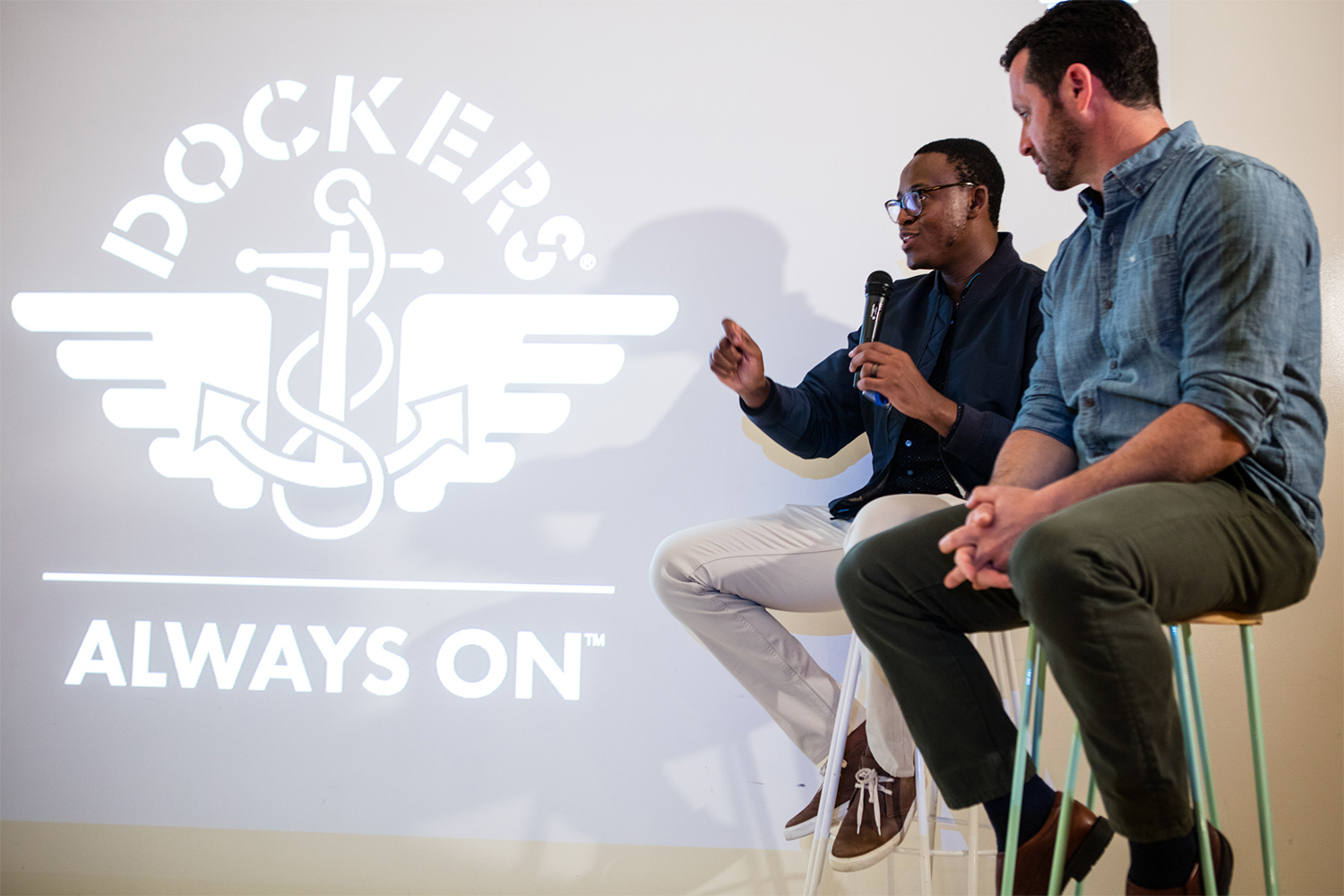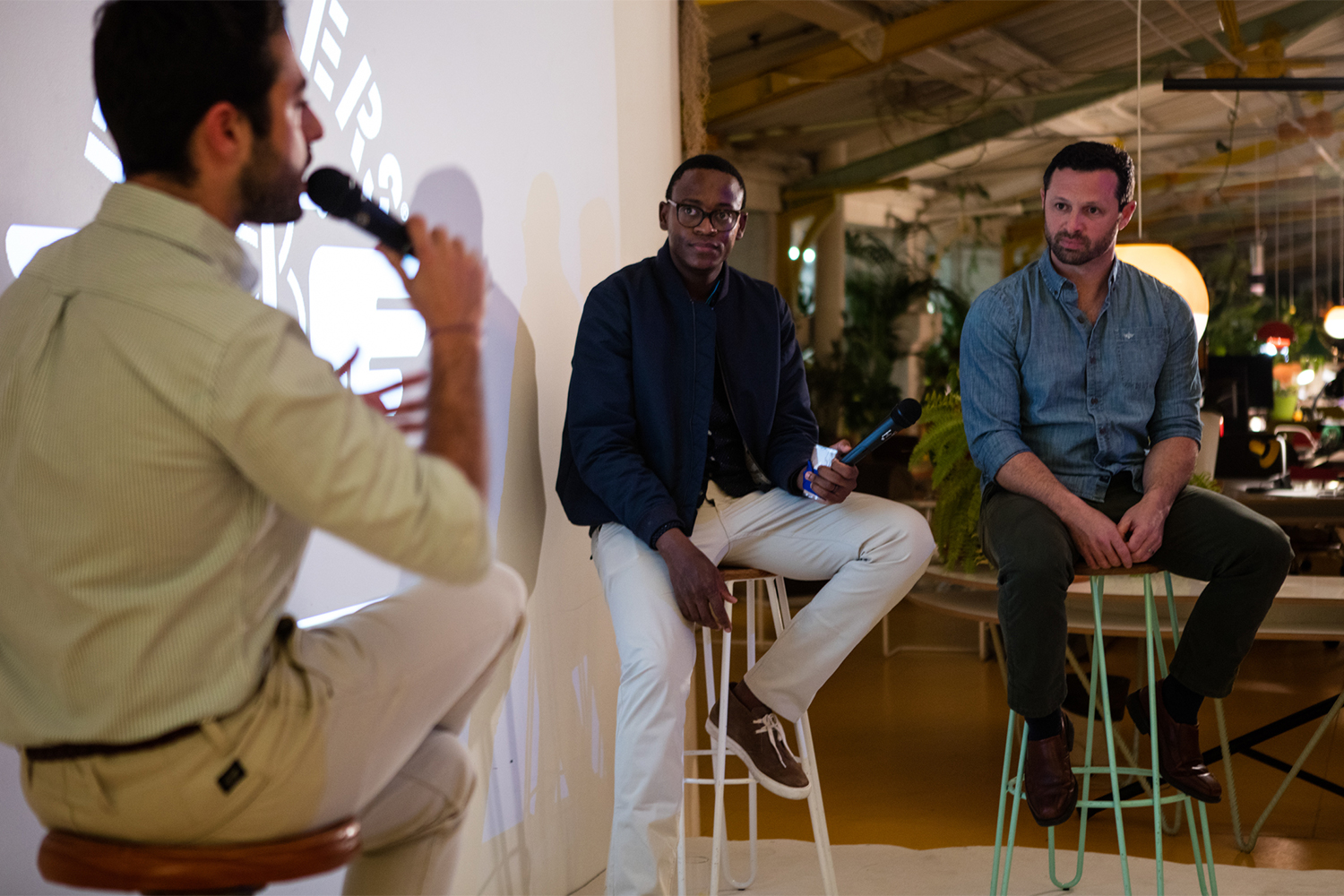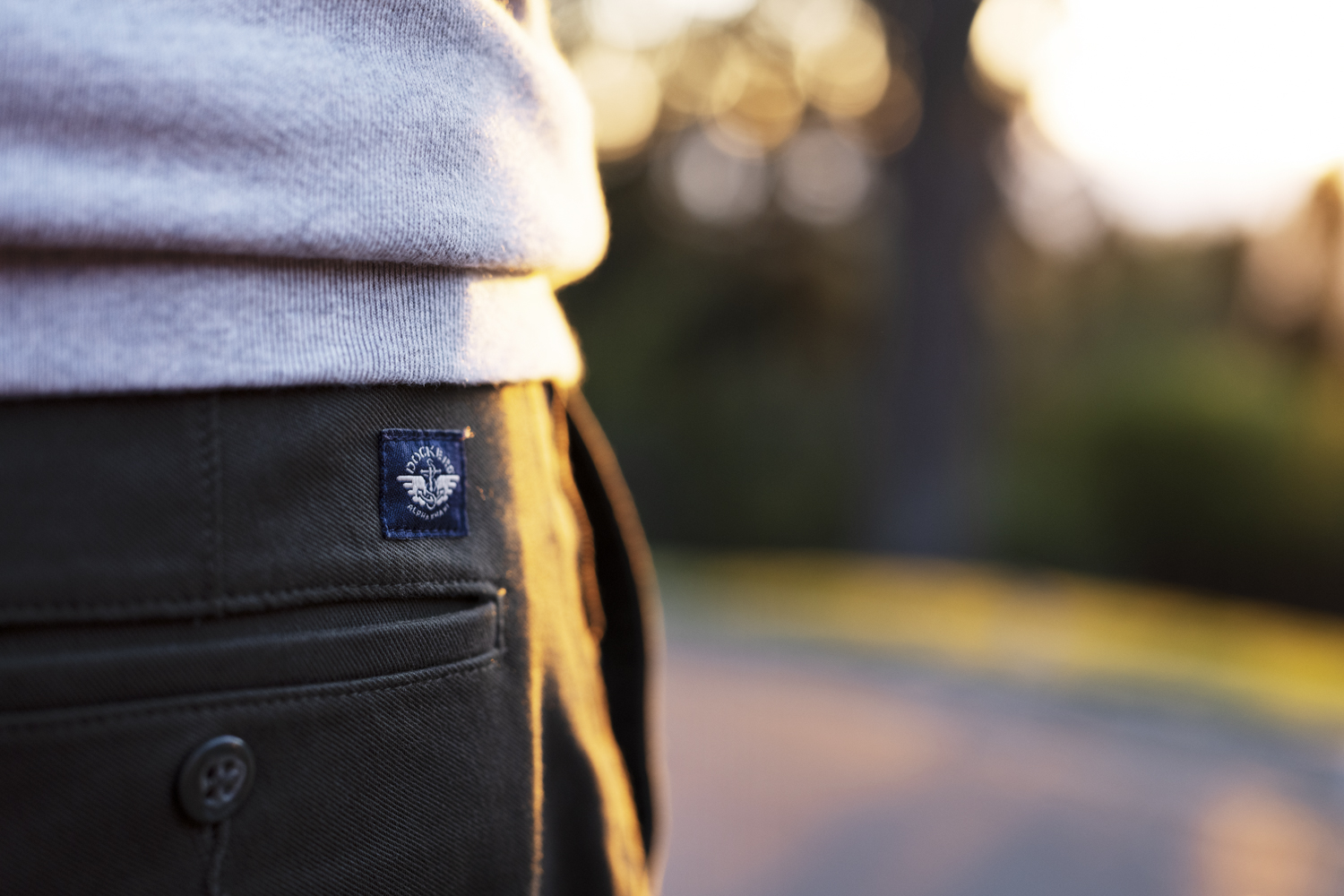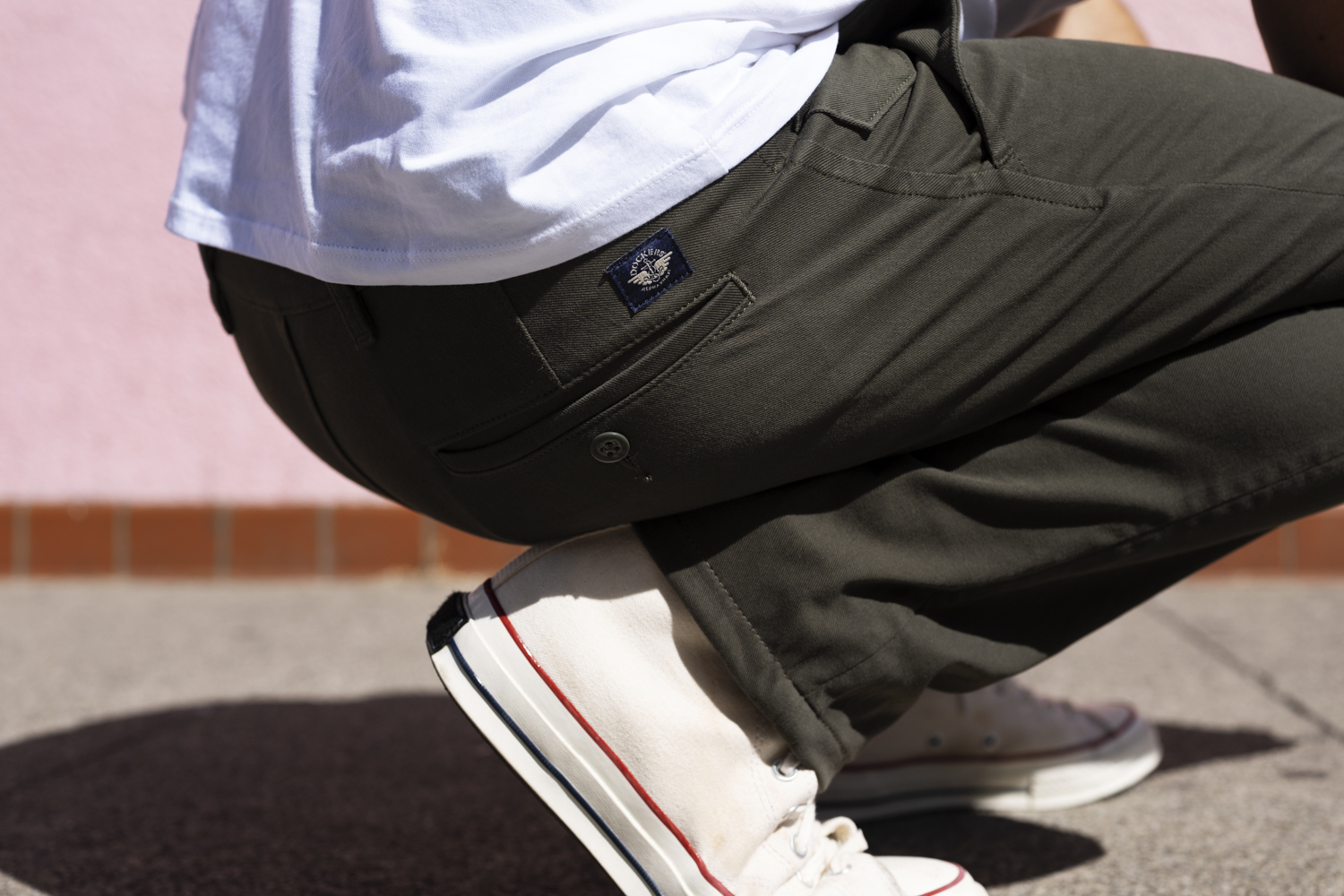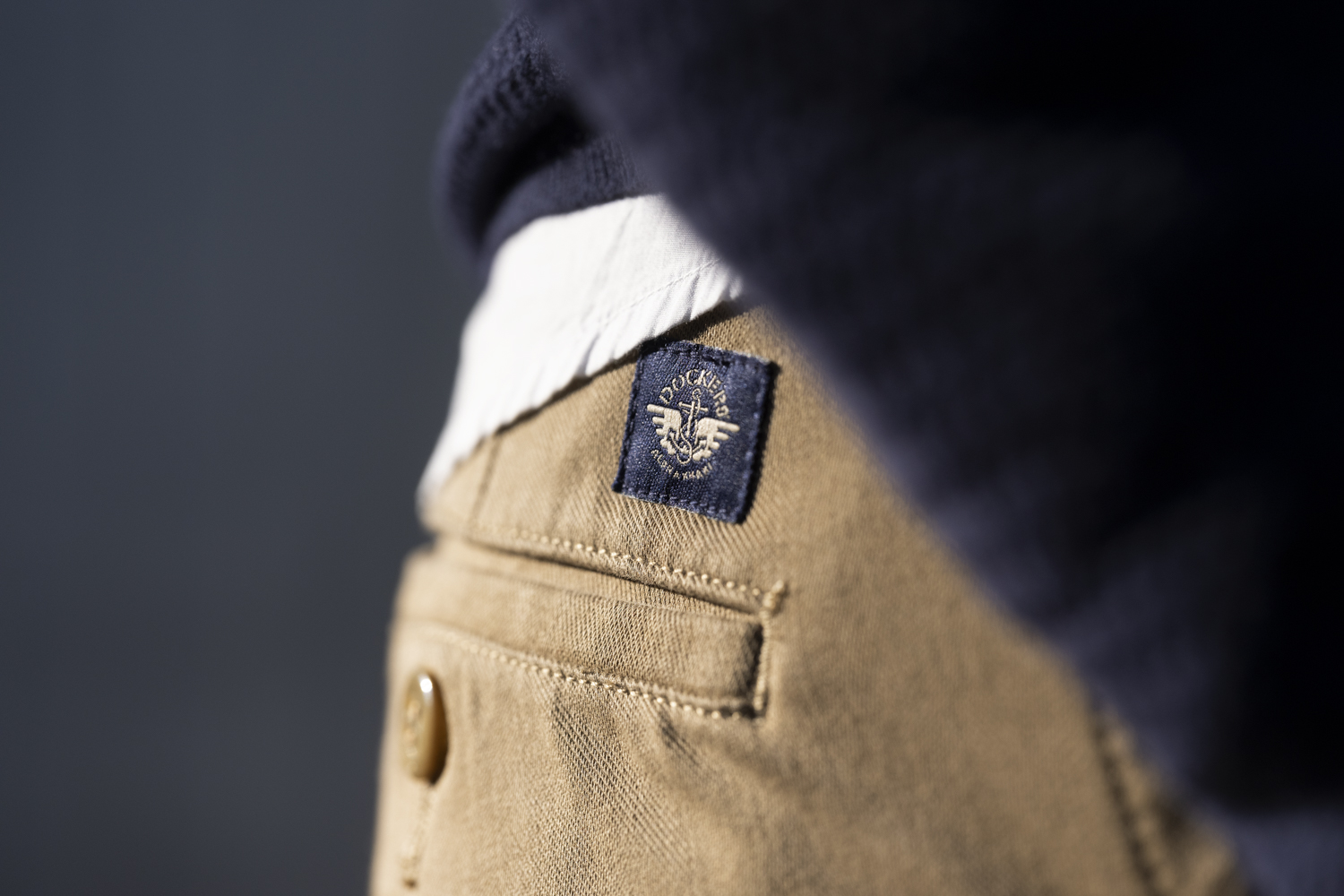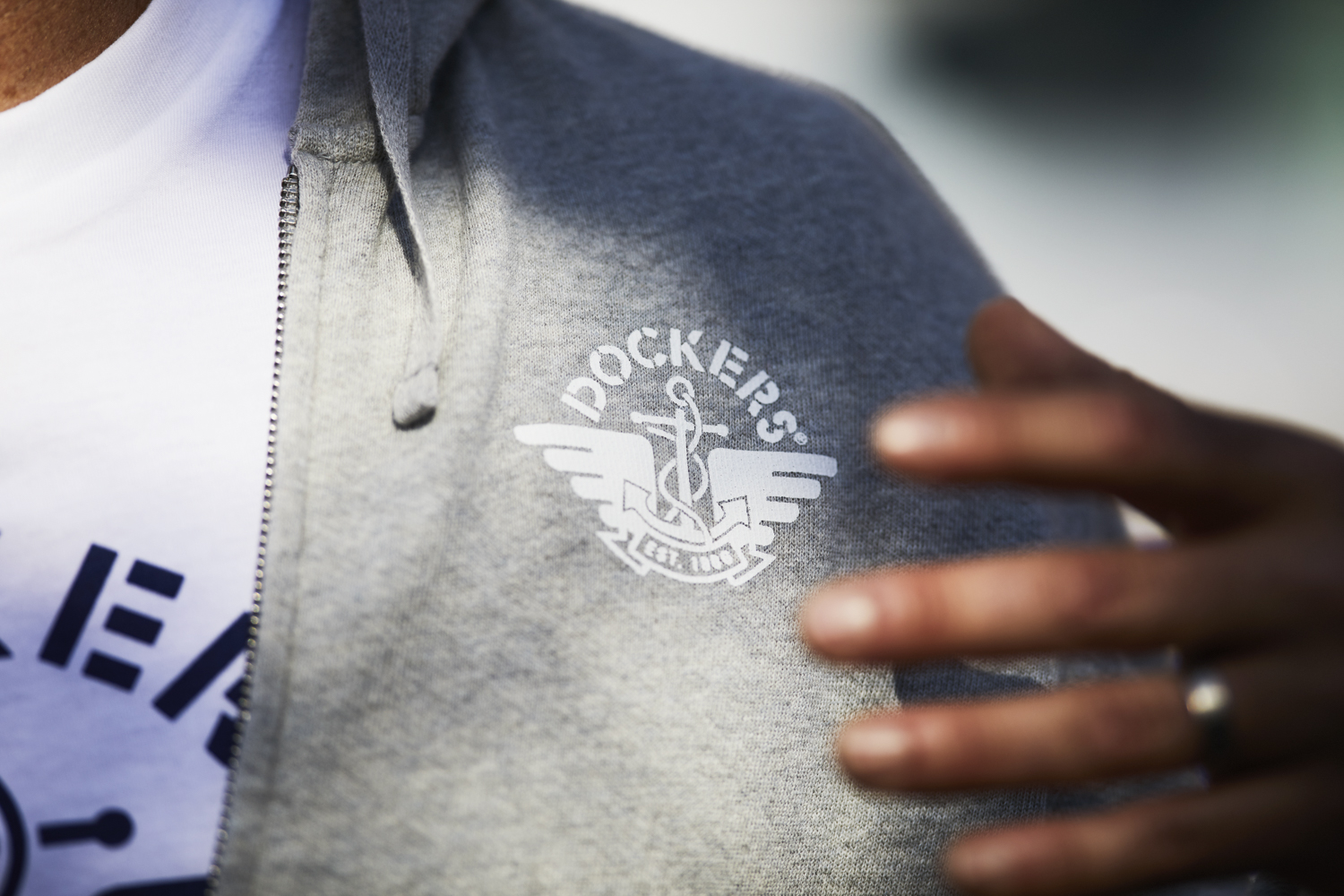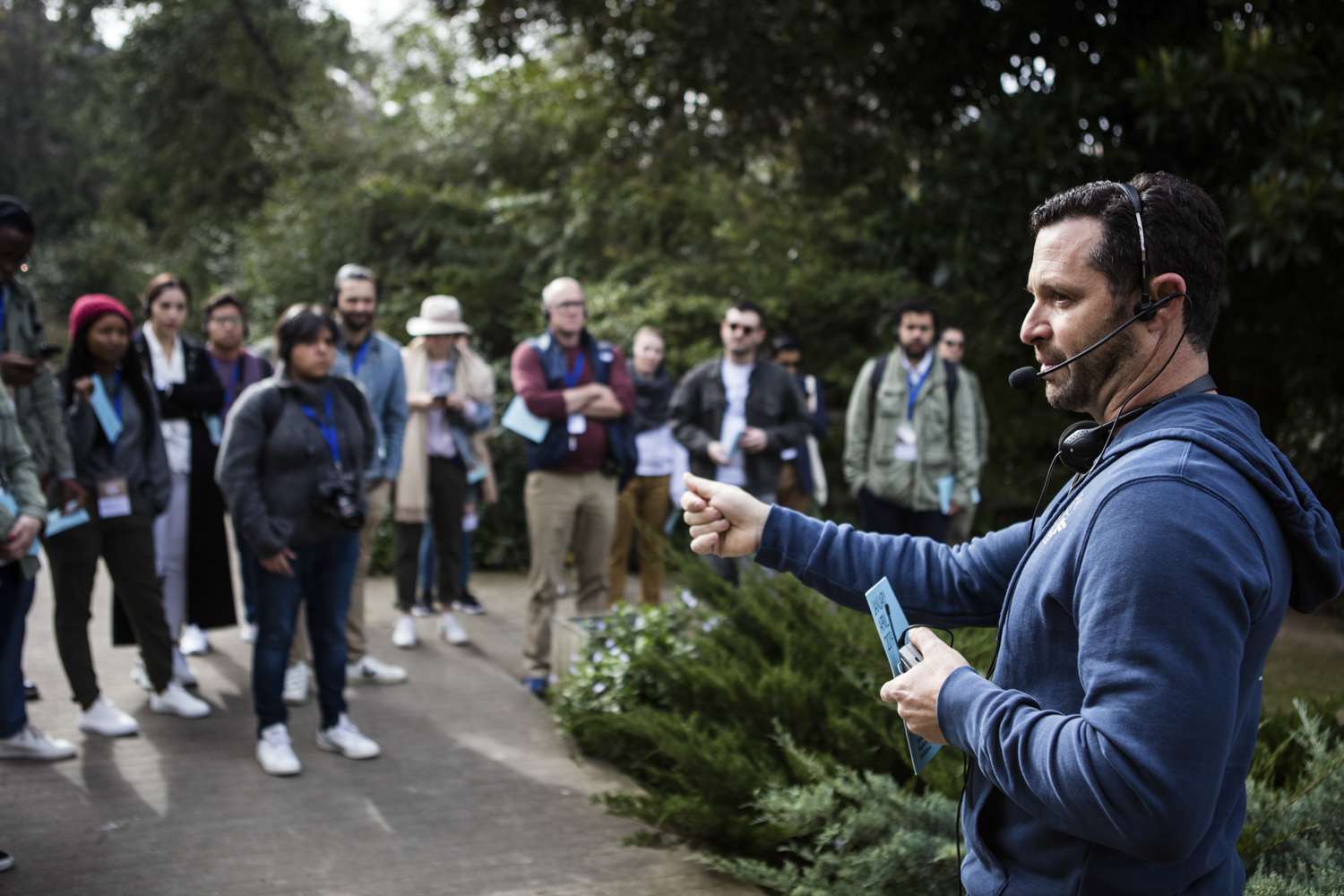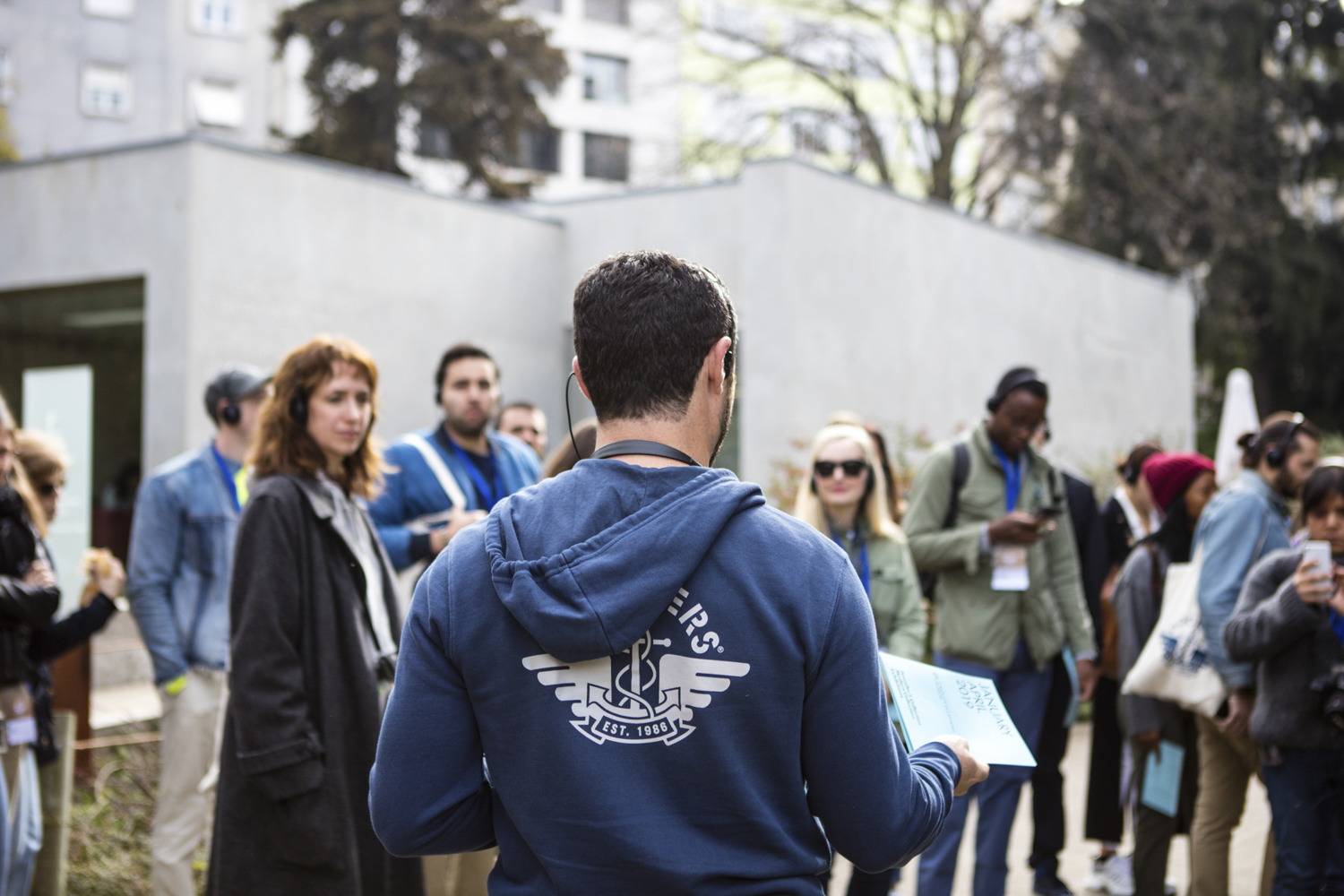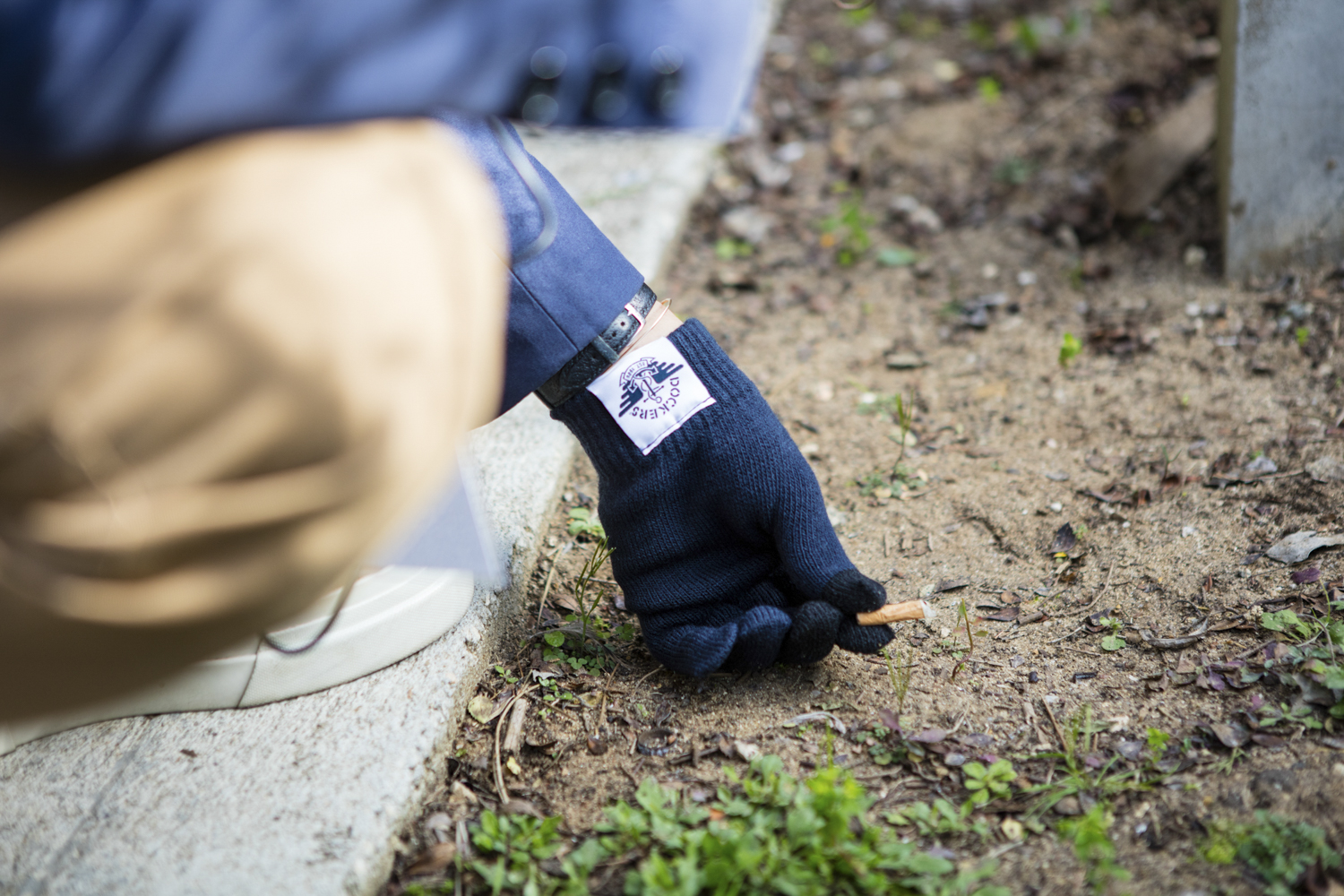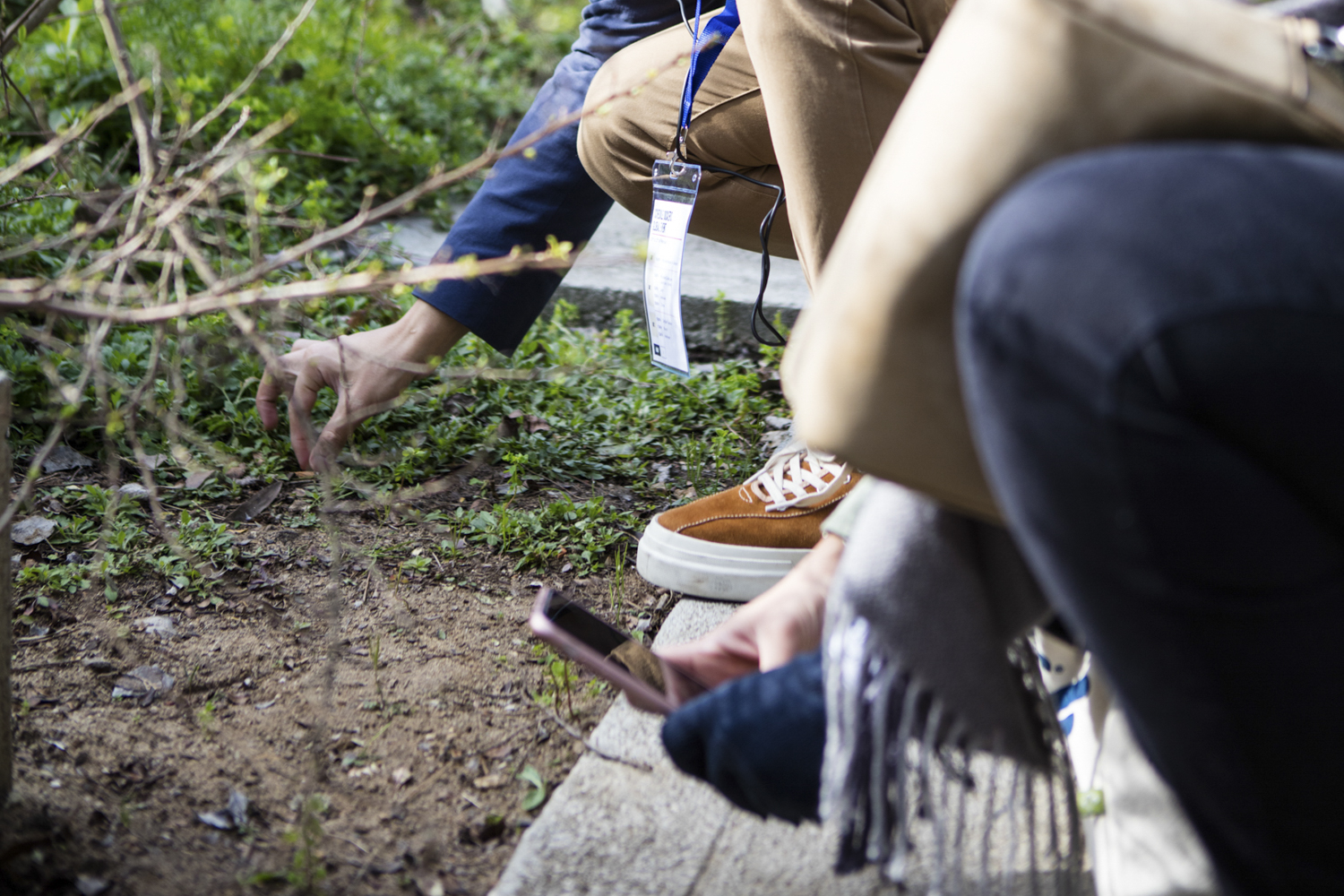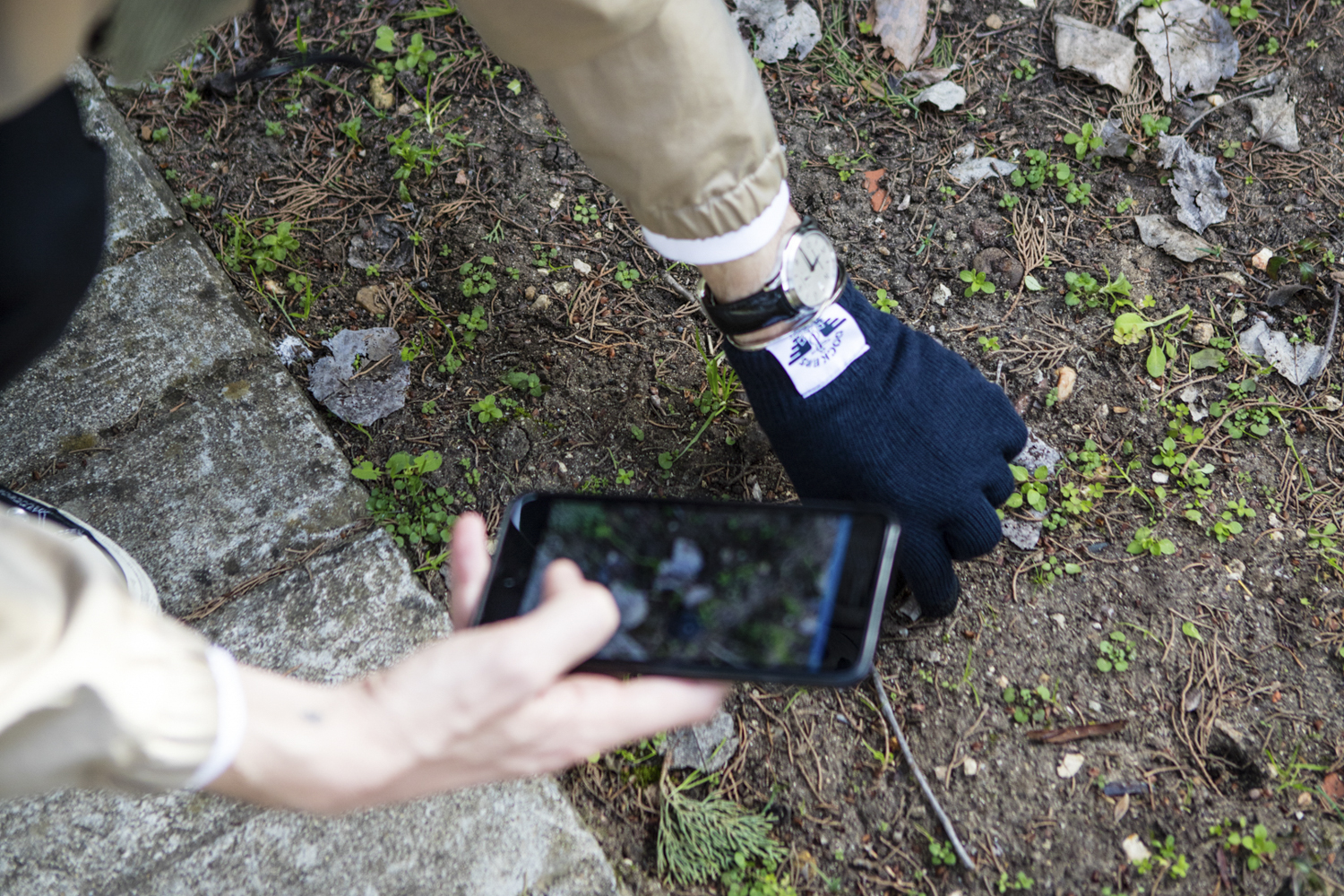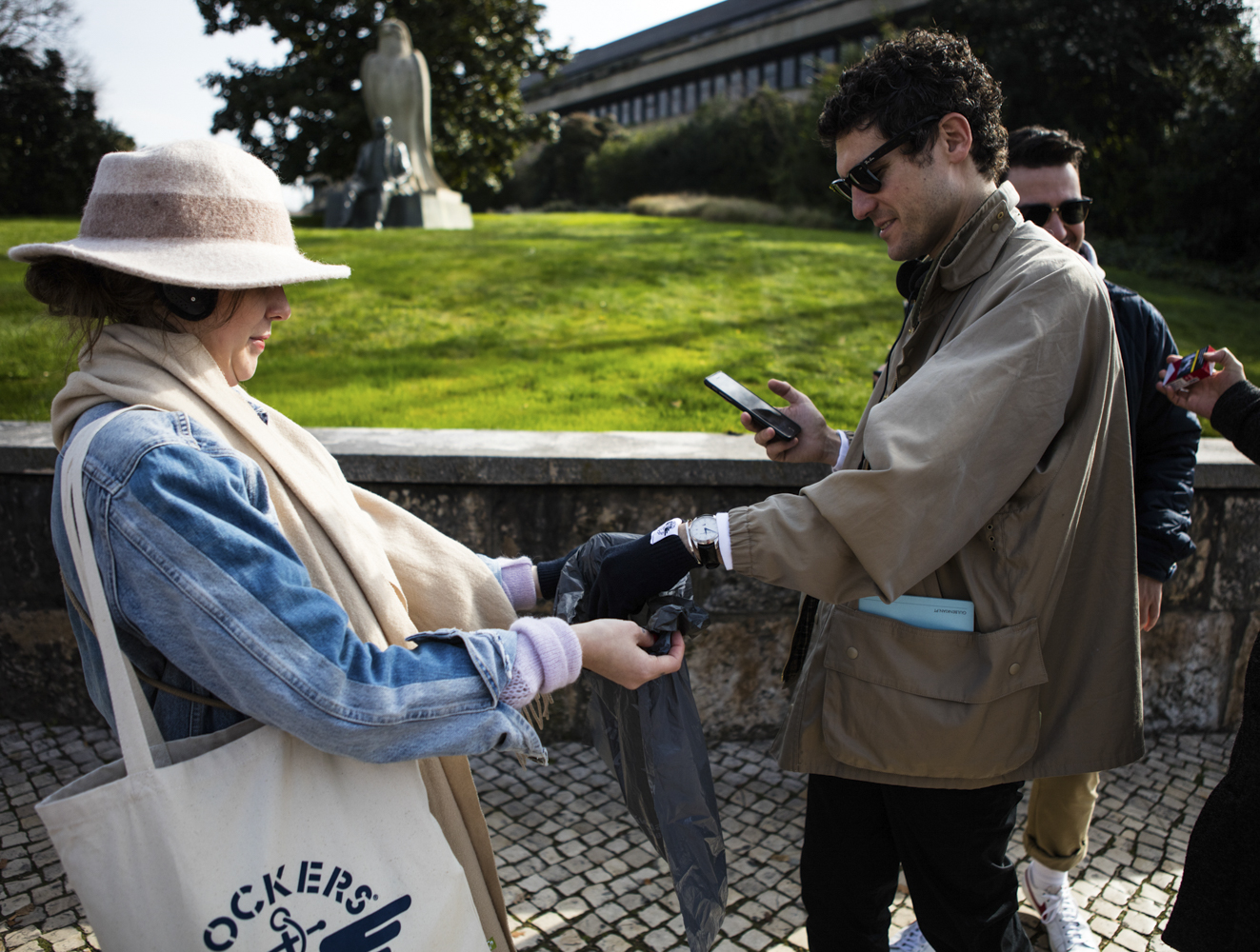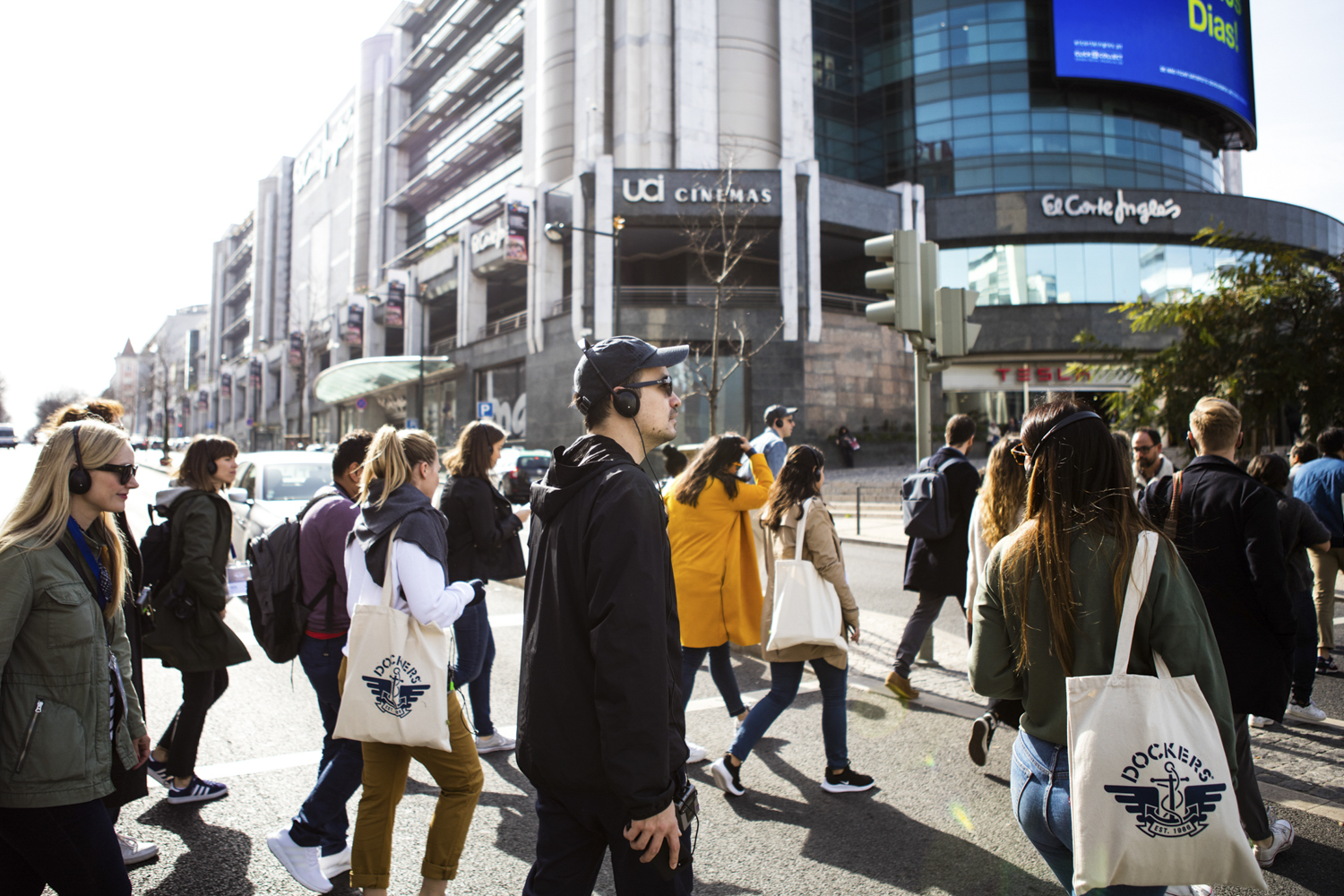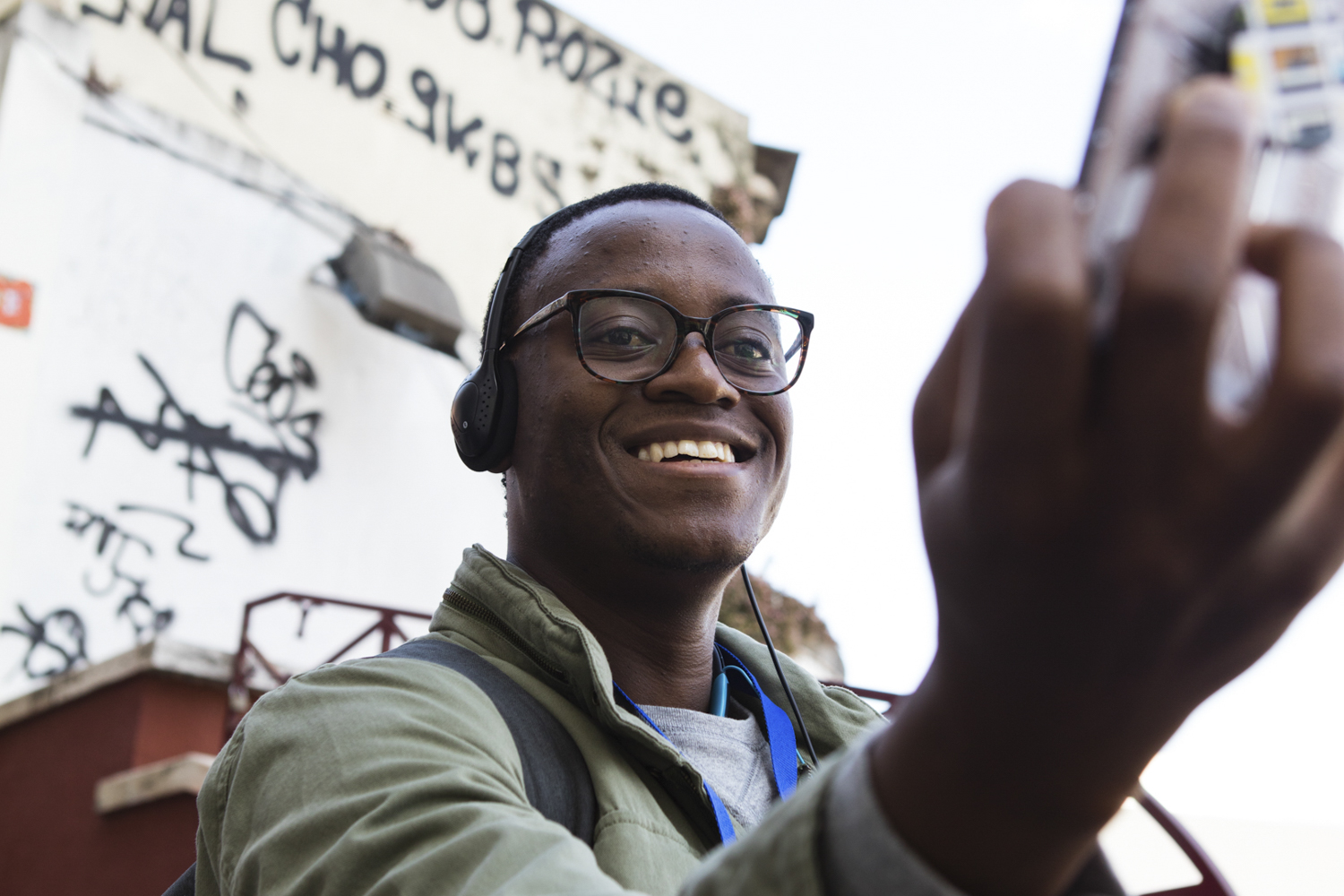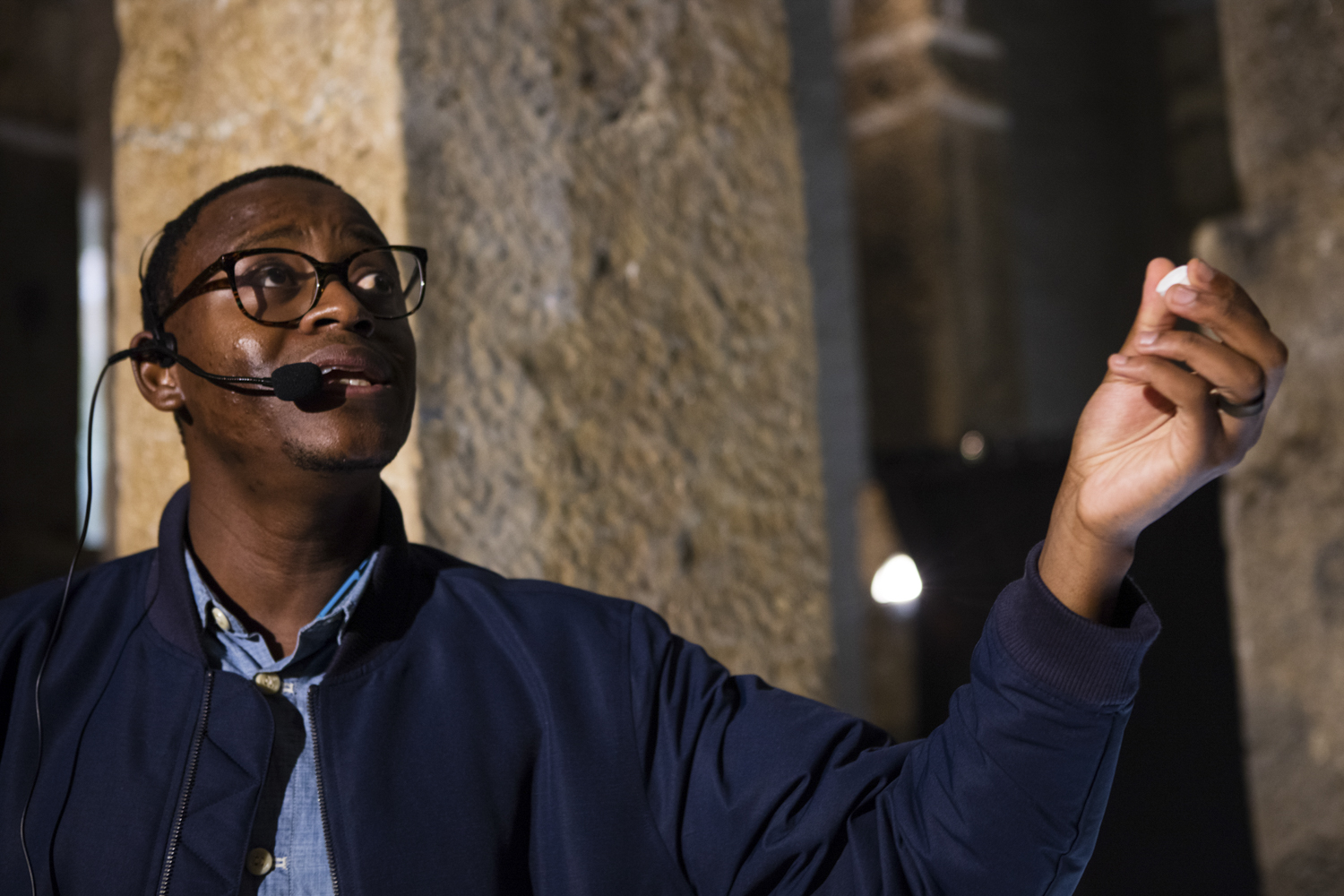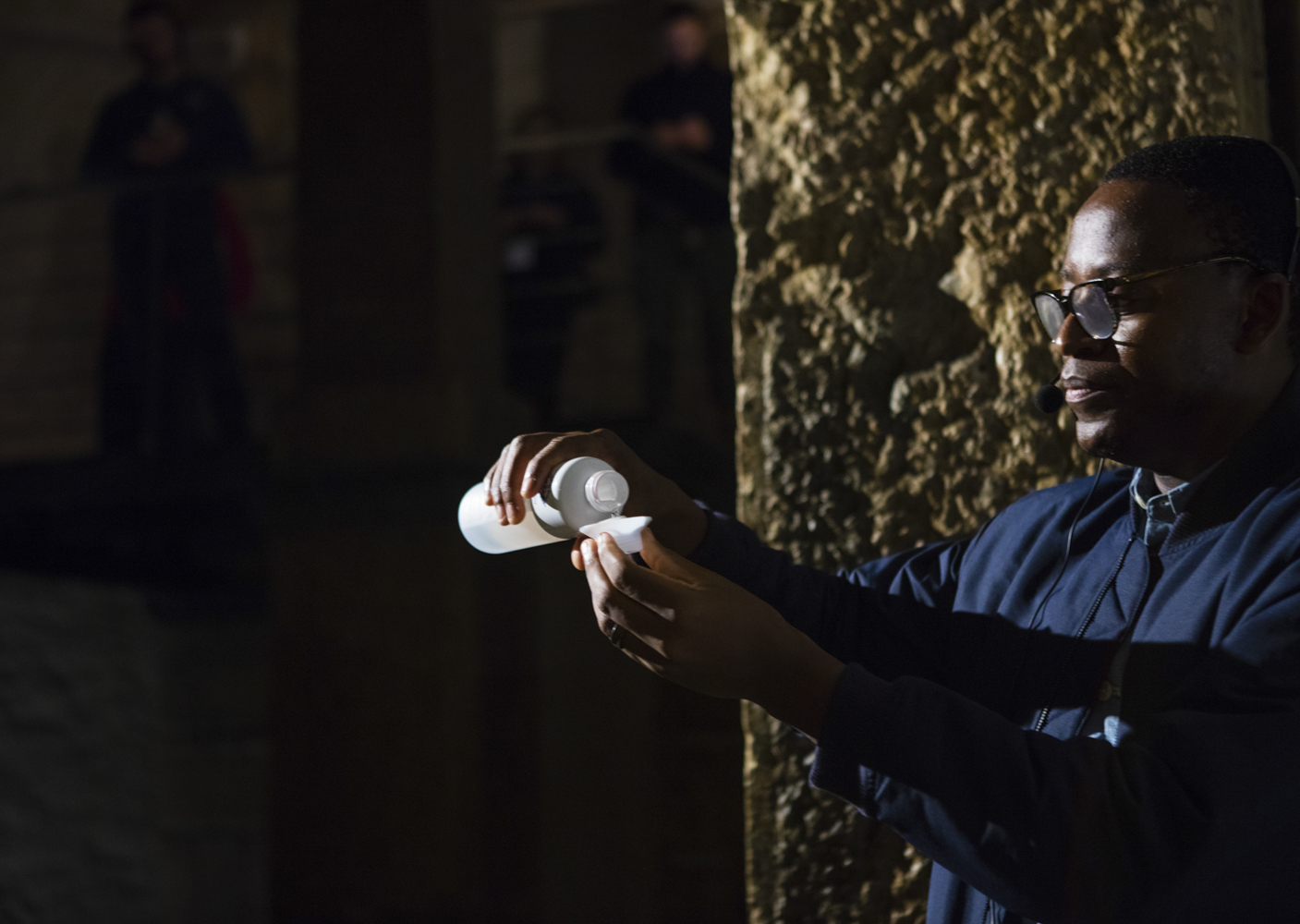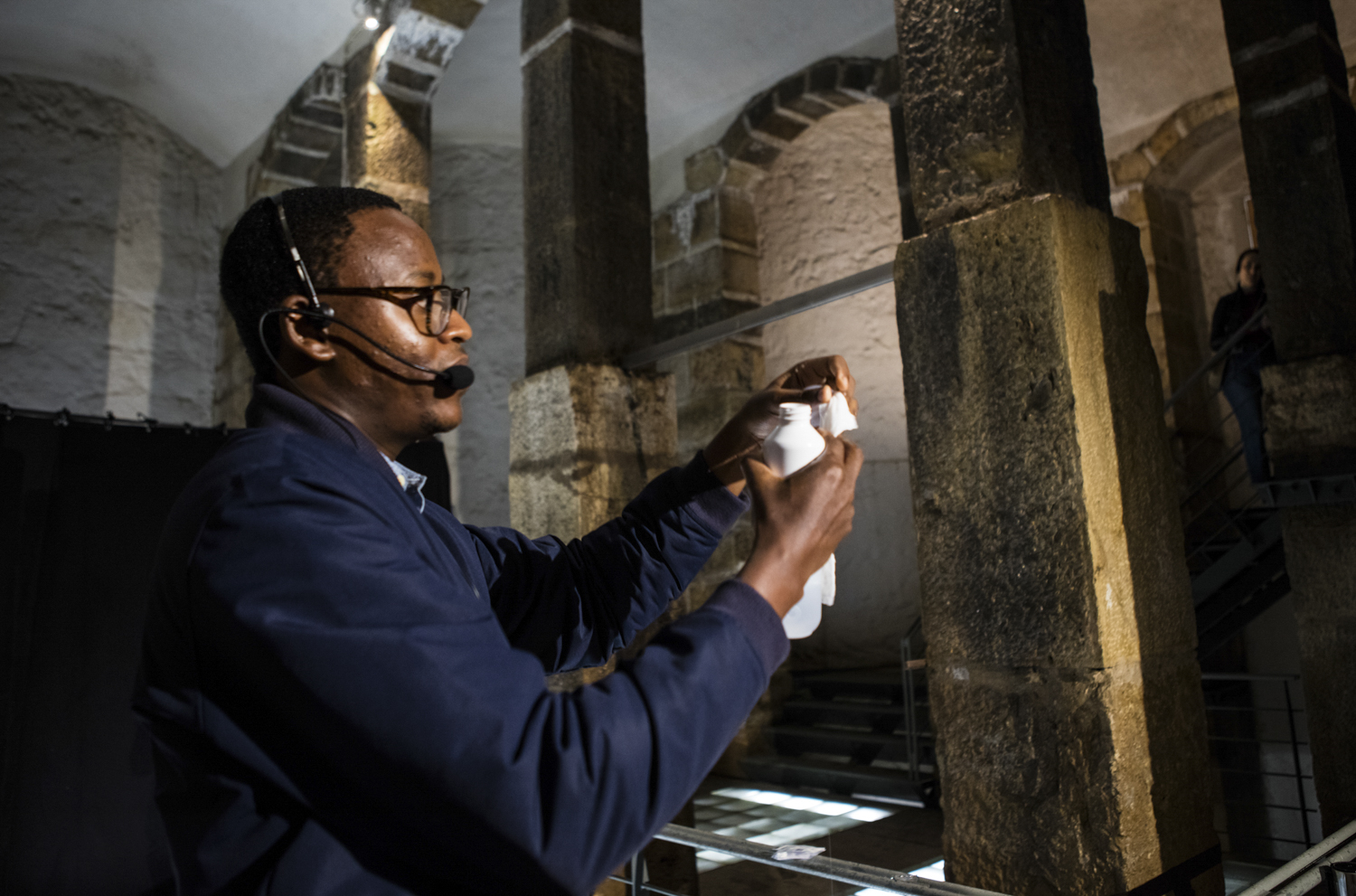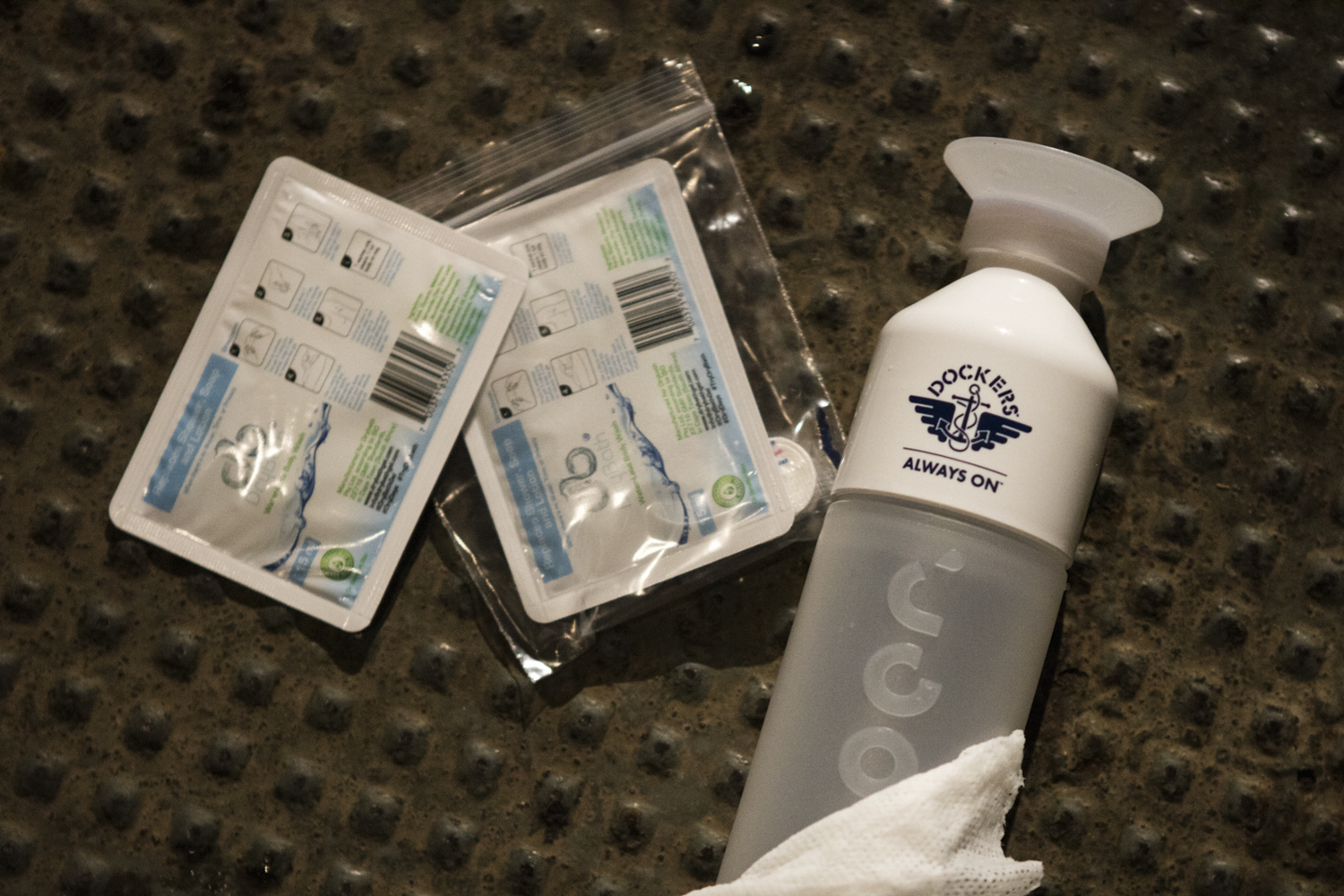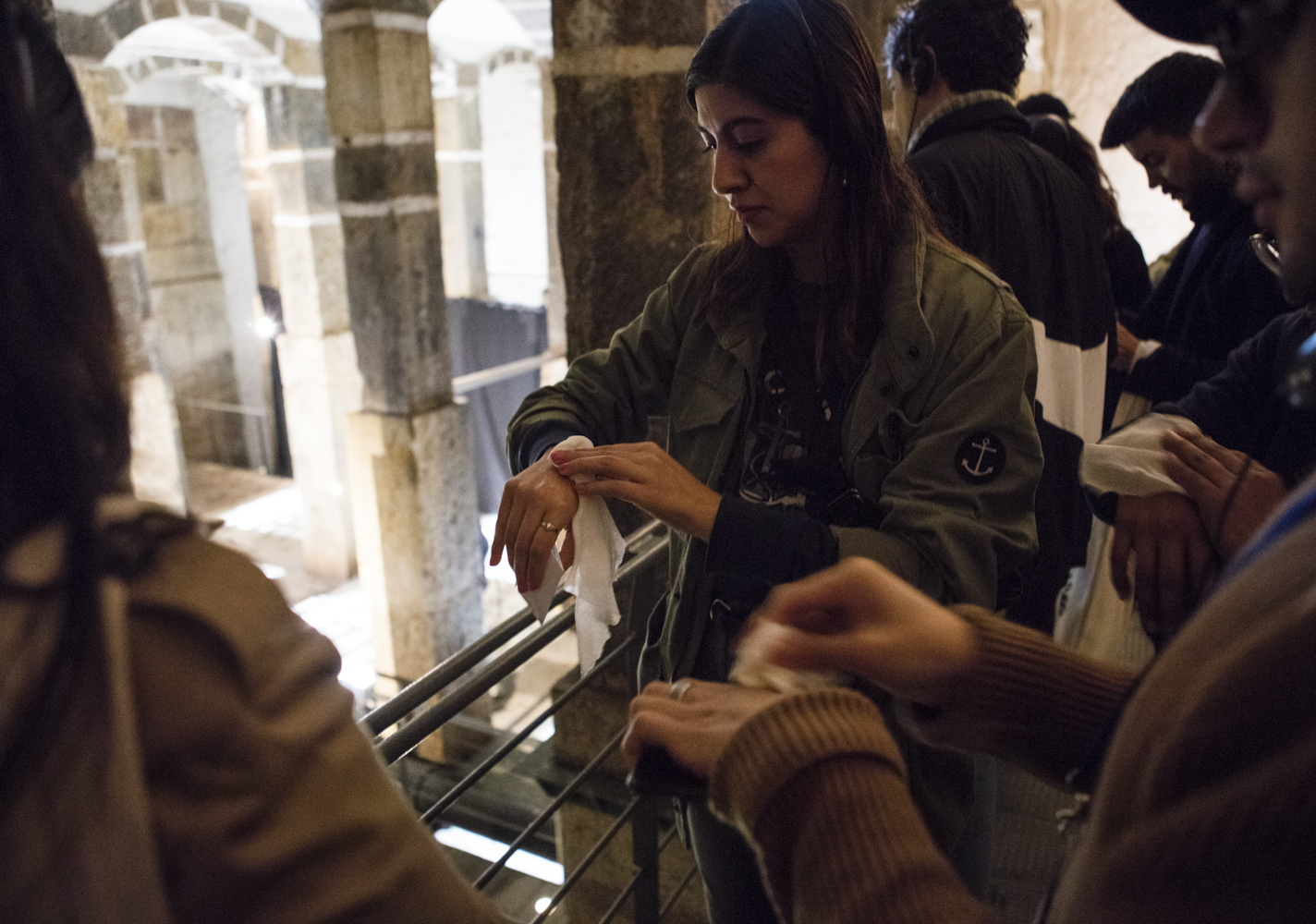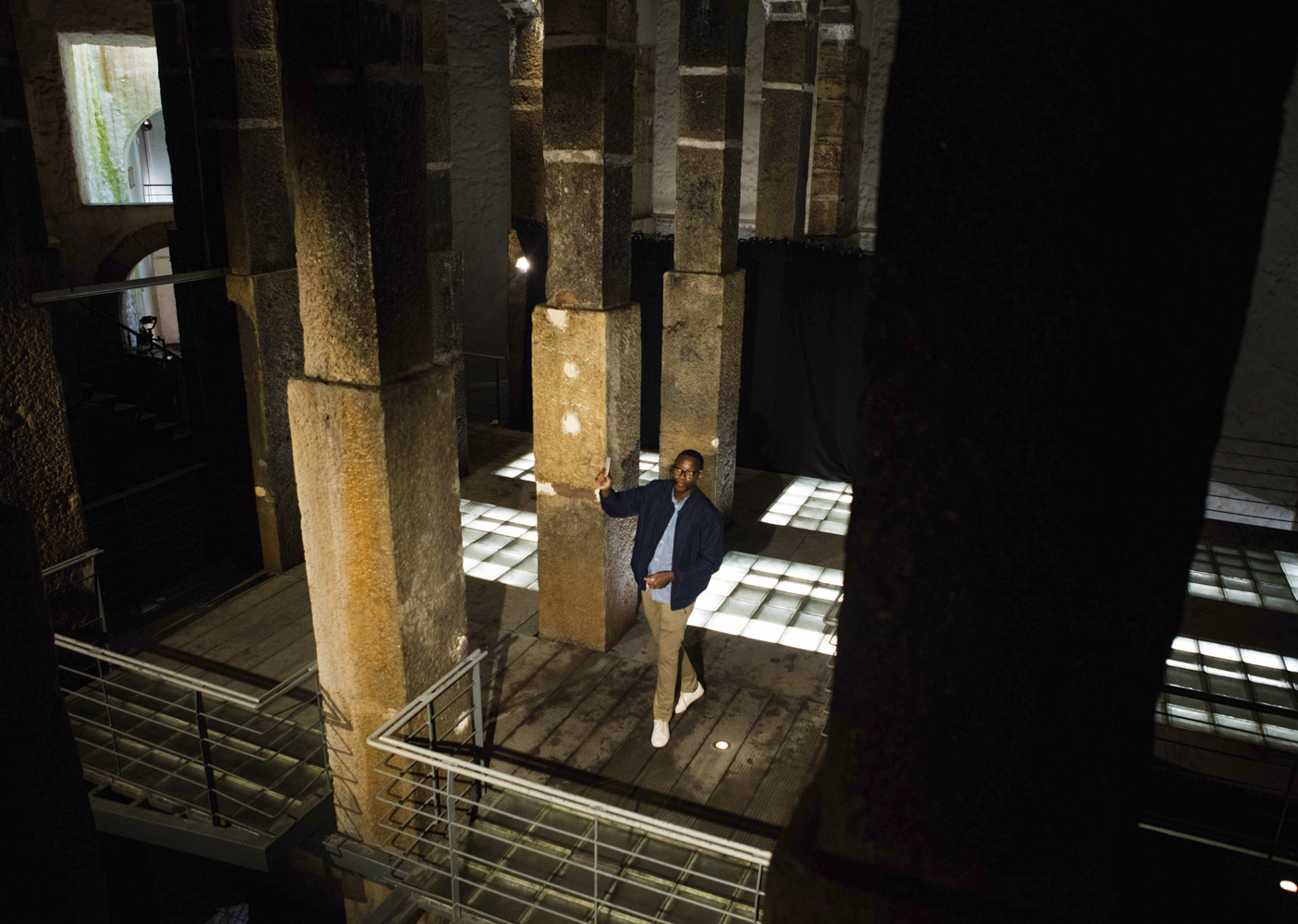WWe all know Dockers as the de facto uniform for casual offices everywhere, but when the San Francisco-based division of Levi Strauss & Co., invited an international group of editors and influencers to Lisbon, Portugal, in February to introduce its new Dockers Challengers, there was a collective “huh? Why?”
As it turns out Lisbon and San Francisco have a lot in common. They are both hilly cities with winding streets and cable cars. They both have magnificent “International Orange” bridges, and both have had to reinvent themselves after devastating earthquakes. They are also both tech hubs, with Lisbon’s version of Silicon Valley starting as a response to the Great Recession of 2008.
What Is the Dockers Challengers Series?
A few years ago Dockers created the#DockersChallengers series to follow real people who are making substantive changes in their communities and the world. And by the world, they mean global: Check out the hashtag on social media platforms and prepare to be amazed. Challengers are “ambitious, modern hustlers who make game-changing impact.” Dockers provides a platform to tell those stories, providing much needed exposure to entrepreneurial minds. There’s no financial compensation, but the program provides amazing visibility, not to mention the propulsion of the Dockers marketing machine. Previous Dockers Challengers have included Ross Borden, the co-founder and CEO of Matador Network, one of the world’s largest independent travel media companies, and Zach King, filmmaker and “digital magician” (trust us on this one).
- 1. Ludwick Marishane, founder of DryBath
- 2. Challengers Jeff Kirschner, founder and CEO of Litterati
Much of that spirit of innovation was on display the night Dockers’ kicked off its Spring Summer 2019 Challengers program at a coworking space situated on the second floor of a 19th-century market.
The evening saw the introduction of Challengers Jeff Kirschner, founder and CEO of Litterati, an app that helps humanity clean-up our trash; and Ludwick Marishane, founder of DryBath, a product intended to save water while helping people get clean.
How Does the Litterati App Fight Litter?
Ever have one of those days where you feel like you’re seeing trash just about everywhere you turn? Jeff Kirschner had one of those. While hiking with his daughter, he came across a milk crate tossed into a stream, and his daughter said, “Daddy, that doesn’t go there,”compelling Kirschner to figure out a way to make a difference. The eureka moment led to the creation of his app, Litterati. With a background in advertising, Kirschner recognized the impact that quantified data can have on consumer — and corporate — behavior.
Using the app is simple. Open it. Take a picture of the trash you find. Dispose of the trash (the app doesn’t help you with that part). Tag the image with various descriptors like bottle, soda, McDonald’s, etc. The app then compiles the data to show where the litter was found, keeping a running total of the number of pieces collected (more than 2.5 million pieces as of this writing), and a leaderboard of the day’s most prolific pickers.
The app was demonstrated to the group of visitors the next morning with a tour of the city’s Gulbenkian Garden and down into its major thoroughfare, the Avenida de Liberdade. As litter was snapped, cataloged, and discarded, bits of Lisbon’s storied history were interspersed with anecdotes about Litterati’s effectiveness.
“[My goal is] to figure out ways that we can partner effectively with brands and entities for the greater good.”
As an example, officials in Bozeman, Montana, used the app to document 4,000 cigarette butts spread across city parks and a five-block downtown area…in just over 8 hours of searching. The Litterati data is now being used to pursue city policies that ban smoking in public parks.
A seemingly simple, solution, Kirschner’s concept was savvy enough to raise $50,000 in initial funding from a Kickstarter campaign. He was also a TED resident in 2017. Kirschner even obtained a $225,000 grant from the Small Business Innovation Research program (funded by a group of federal agencies, including the Department of Agriculture, Department of Defense, NOAA, and the National Science Foundation). The company is currently up for a Phase II grant from the program, which will bring an additional $750,000 into the organization.
“My goal isn’t to be a non-profit,” says Kirschner. “It’s to figure out ways that we can partner effectively with brands and entities for the greater good. A ‘certain large coffee company’ approached us worried about data we may have gathered on them. They’re not the villain here. Why not work together to see where change can be made? Maybe we could partner with, for instance, the MTA in New York City, so that if one of our users gathers and tags a certain amount of trash, they get a travel voucher. Ultimately, I’d like to follow the carbon credit model, where a company calculates their carbon footprint and pays that amount to its city or municipality. The city uses that money to create a program for schools, utilizing Litterati, of course. The company gets good public relations, the city gets data generated by students using the app, the students get a STEM-aligned, age-appropriate common core program, Litterati gets some money to make it all happen…and the planet wins! Now, imagine if we can replicate programs like that internationally! That’s when this movement becomes incredibly powerful.”
What’s this About Getting Clean without Water with DryBath?
So if Kirschner wants to clean up the planet, Dockers’ other Challenger, Ludwick Marishane, wants to keep it clean. Or at least its human inhabitants. South African native Marishane has developed DryBath, an innovative body wash that effectively cleans the entire body with little or no water.
Marishane presented his product, fittingly, in the Reservatório Da Patriarcal, a 19th-century reservoir that was once part of Lisbon’s extensive network of cisterns and aqueducts. He began by asking how many in the group had ever gone for a day without bathing? Two? Three? By the time he’d gotten to four days, there was only one hand still up, and that was somebody who’d been on an extended trek without access to facilities. In Marishane’s research, needing to feel water, changing clothes, spending time alone, and using great smelling soaps were listed as typical requirements to feel “clean,” but odor was consistently enemy number one for most people. If a person smells, it is assumed that they are dirty, even if they don’t necessarily have dust or dirt actually on their skin.
Marishane posits that most of today’s bathing rituals are perpetrated by large companies in an effort to make profits. He points out products like antibacterial soaps that actually need to be on your skin for three to five minutes in order to be effective and those that strip the skin so that those same manufacturers can then sell moisturizer to solve the very problem they created. (I know, I know … I’m a grooming writer … this should be blasphemous for me!).
Most of today’s bathing rituals are perpetrated by large companies in an effort to make profits.
Of course, the larger picture here is that water shortages are becoming more and more common. Marishane says “China, which has 20 percent of the world’s population, controls only 7 percent of the world’s water supply. Russia, which has 10 percent of the world’s population, controls 20 percent of the world’s water, yet still has issues. As always, those people and nations with the fewest resources will struggle the most.”
In fact, 2.5 billion people globally do not have proper access to water and sanitation, leading to populations that are more susceptible to health risks and diseases. Five million of these people live in Marishane’s own South Africa.
Marishane originally created his product with the concept that a bottle of DryBath could be used, brought back to the store, refilled, and used again. He discovered, however, that most of his customers prefer a single-use sachet. While those sachets are currently selling for about 4 dollars a pop, his goal is to drive the price down through economies of scale. His target is 50 cents each so that even the most challenged individuals will able to afford the product, and avoid the health risks associated with not keeping clean.
Unfortunately, 2.5 billion people globally do not have proper access to water and sanitation, leading to populations that are more susceptible to health risks and diseases.
Each sachet includes enough gel for one cleaning, as well a small cotton towel or wipe that looks almost like a piece of candy: it unrolls into a suitable cloth with the addition of just a few teaspoons of water. “You don’t really need the towel, but we found that people really wanted it.” It is completely biodegradable, and Marishane intends to add seeds to the product eventually, so it could even grow plants if disposed of in the right place.
As Marishane pointed out to the group, “You guys are not my customer. You’ve already learned ‘bad’ bathing habits. My goal is to reach younger people…kids who are at that age where they don’t want to bathe.” He’s reaching his goal: Many young mothers have discovered that it’s easier to get their children to use DryBath at the end of a long day, than to force them into a tub or shower.
What About Dockers?
And so, after all that, what’s going on at Dockers? If you haven’t checked the collection out lately because you thought it was too nerdy or Normcorps, go look now!
The company has embraced what they call an “always on” attitude. Let’s face it: Most of us wear the same clothes to work that we wear in the evening and also wear on the weekend. There isn’t the same sense of wardrobe hierarchy that there was a generation ago. Dockers now offers, yeah, classic khakis and shorts, but also great technical fabrics for comfort and ease. DuraFlexLite is a lightweight cotton blend perfect for warmer climates (and has found its way into multiple fashion and style round-ups on this very site). Smart360Flex features four-way stretch and a security pocket. SupremeFlex offers a new tapered cut, as well as amazing flexibility. Check out the website or a store to see the incredible variety of fits and an awesome color range.
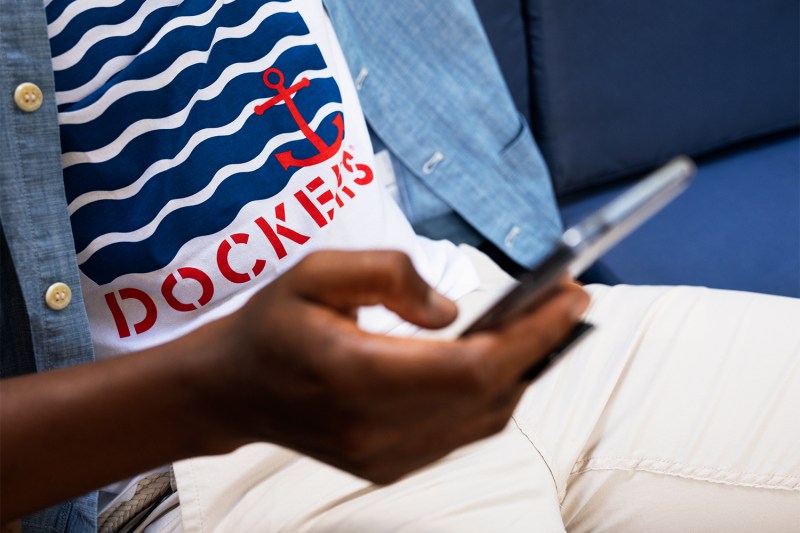
As it turned out, from an innovative place to innovative people to innovative product, Dockers was challenging indeed. Check out #DockersChallengers, #DockersAlwaysOn, on social media for more insight.
Speaking of office wear, learn how to put your office outfits on autopilot with this guide to all your work appropriate basics.
